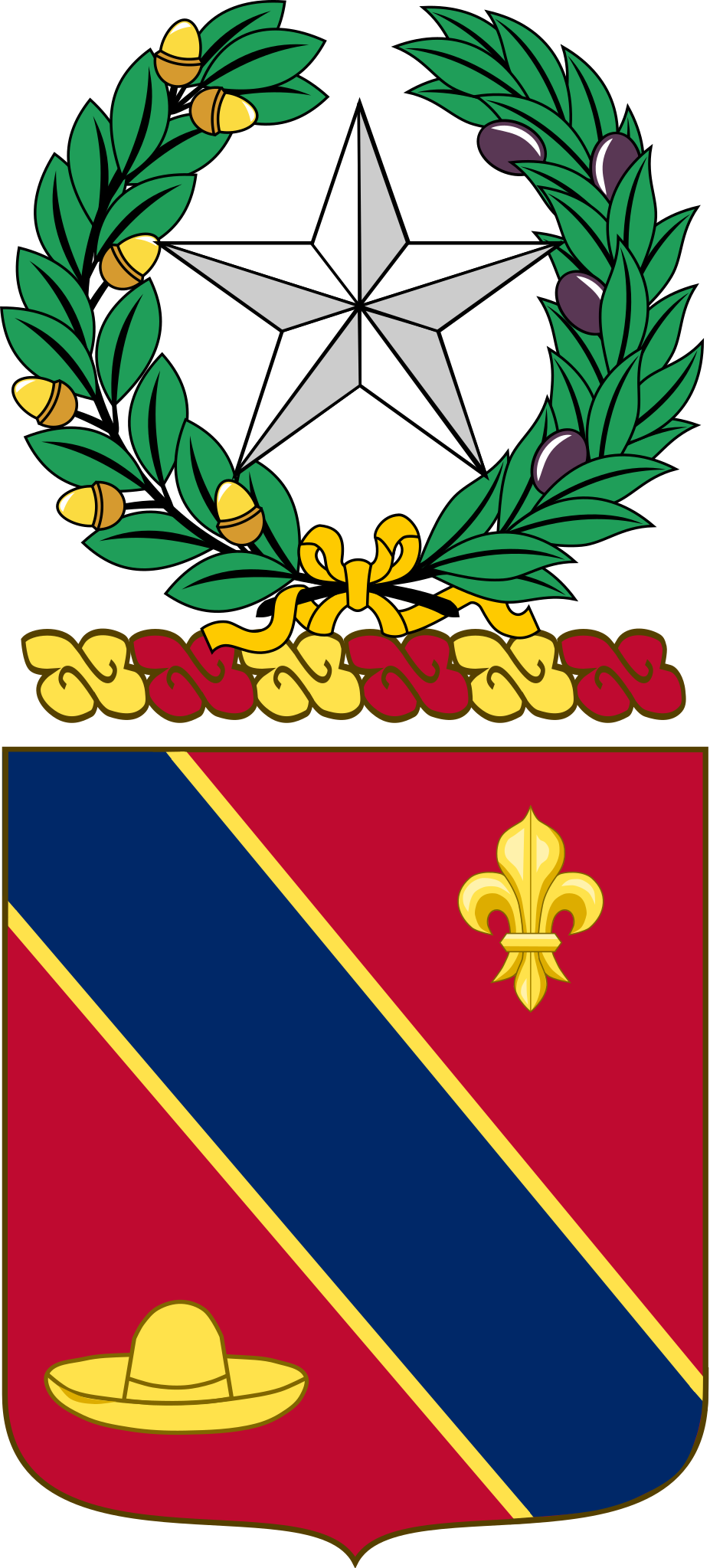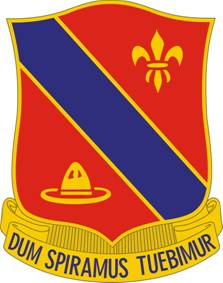About 4th Battalion, 133rd Field Artillery Regiment4th Battalion, 133rd Field Artillery Regiment
MOTTO: "Dum Spiramus Tuebimur" "While we breathe, we will defend".
The 133rd Field Artillery was organized in June, 1917, as the First Texas Field Artillery. It was drafted into Federal service August 5, 1917 and redesignated 133rd Field Artillery October 15, 1917. It served overseas during the First World War but did not see combat.
Arguably the 133d has the earliest origins as a field artillery unit in the entire Texas National Guard. Antecedents of the unit were formed in Dallas in 1880 as the Queen City Guards and later as Battery A, Field Artillery, Texas National Guard, also called "Logan's Battery" or the "Dallas Artillery". Units of the Regiment saw service in the Spanish American war and on the Mexican border in 1916. Battery A became part of the First Texas Artillery by 1900 equipped with 3 inch guns, and as the First Texas it was called to active duty in 1917 with the rest. of the Texas National Guard. It was designated as a 6 inch howitzer unit and later in April, 1918, as a 155 mm. regiment. It served in France during World War I, separated from the 36th Division for training at the famous French artillery center at Coetquidan. Completing the standard eight week course of instruction in six weeks, the 133d moved into support positions behind the fighting lines, but did not see combat during the war.
The Regiment was called to federal service for World War II as part of the 36th Infantry Division on 25 November, 1940. The 133rd departed from New York for North Africa on 2 Apr 1943. After staging in North Africa, the 133rd Field Artillery was assigned as direct support for the 143d Infantry and landed in the assault at Salerno 9 September, 1943. The 133rd fought the bloody battles up the boot of Italy until relieved, retrained and committed to reinforce the Anzio landing on 22 May, 1944, participating in the liberation of Rome on 5 July 1944. Later the unit made a third amphibious landing in Southern France, 15 August, 1944, and fought with the 36th during the later months of the war, ending the war on the German-Austrian border area.
The mission of the Field Artillery is to destroy, defeat, or disrupt the enemy with integrated fires to enable maneuver commanders to dominate in unified land operations. The 4-133rd is equipped with several High Mobility Artillery Rocket System (HIMARS).
In November 2019, 4th Battalion deployed to the Middle East in support of Operation Inherent Resolve. The battalion redeployed to the United States in September 2020. During 4-133’s deployment - its first overseas tour since World War II - Soldiers conducted operations in Syria, Egypt, Afghanistan, the United Arab Emirates, Kuwait, and Yemen, firing a total of 87 missions in support of U.S. combat operations.
Coat of arms: Distinctive unit insignia:


Shield
Gules, a bend Azure fimbriated or between a fleur-de-lis and a Mexican sombrero of the last.
Crest
That for the regiments and separate battalions of the Texas Army National Guard: On a wreath of the colors Or and Gules a mullet Argent encircled by a garland of live oak and olive Proper. Motto DUM SPIRAMUS TUEBIMUR (While We Breathe, We Shall Defend).
Symbolism
The shield is red for Artillery. The blue bend, taken from the Dallas family coat of arms, represents the descent of the organization from the Dallas Artillery Company, earlier known as the Queen City Guards. The sombrero is symbolic of the Mexican Border; the fleur-de-lis, service in France.
The crest is that of the Texas Army National Guard.